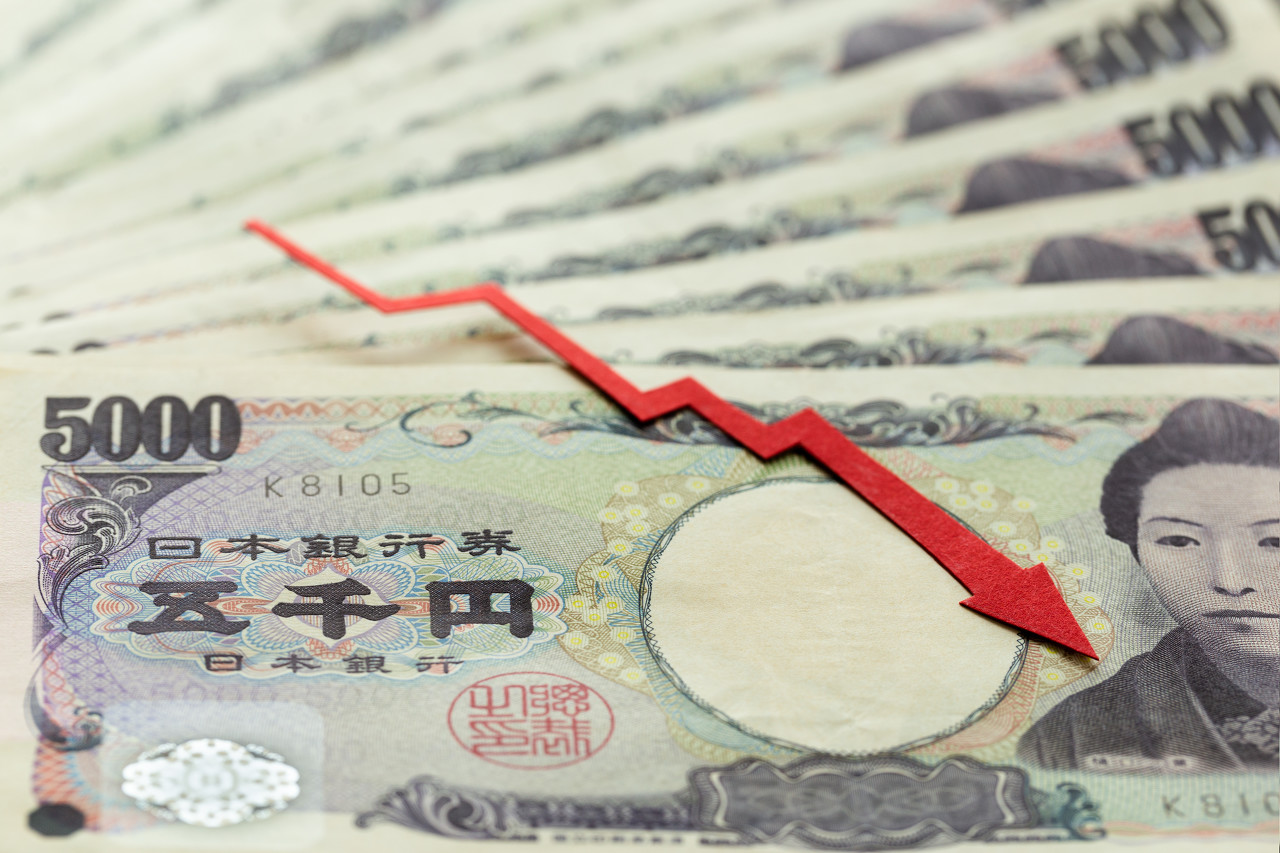
Japanese Finance Minister Koichi Katayama recently warned of unilateral fluctuations in the foreign exchange market and reaffirmed the government's high vigilance towards the market. On that day, the Japanese yen fell to 154.5 against the US dollar, hitting its lowest point since February this year. At the same time, Kim Sung-moo, the chairman of the Iwaki Credit Association in Fukushima Prefecture, publicly apologized for the agency's donation of more than 1 billion yen to the yakuza. These events reveal that the Japanese financial system is facing a dual crisis - the depreciation of the yen and a crisis of trust.
The depreciation of the Japanese yen has become the focus of market attention. On November 6th, the USD/JPY rebounded from 154.11 to 153.14, but the yen remained weak. This round of devaluation is closely related to the election of Japan's new Prime minister, Saane Takashi. The fiscal expansion policy proposed by Kaohsiung City and expectations of "Abenomics" have raised market concerns over the fiscal deficit. Meanwhile, the Bank of Japan failed to adopt a tight monetary policy in a timely manner. The low interest rates and the lagging pace of rate hikes led to the continuous depreciation of the yen. The dovish stance of the Bank of Japan contrasts sharply with the hawkish policy of the Federal Reserve, widening the interest rate differential between the US and Japan and becoming the main factor for the depreciation of the Japanese yen.
The fundamental reason for the depreciation of the Japanese yen lies in the structural problems of the Japanese economy. Since the Bank of Japan ended its negative interest rate policy last year, although it has raised interest rates twice, the normalization process of its monetary policy has been slow and has failed to stimulate market expectations for the appreciation of the yen. Japan's economic growth has been sluggish. Real wages have declined year-on-year for the ninth consecutive month in September. Household purchasing power has dropped and consumption is weak.
Meanwhile, the problem of moral hazard in Japanese financial institutions is becoming increasingly serious. The 30-year scandal of the Iwaki Credit Union losing funds to the Mafia has exposed the disregard of financial institutions for compliance and ethical bottom lines. The investigation report shows that the former chairman of the institution, Jiro Ejiri, admitted to paying about 1 billion yen to anti-social forces, while the management had destroyed evidence of improper financing. Similar issues are not isolated cases. The violations by Japan Post Group and Mizuho Financial Group also reflect the financial industry's neglect of regulations.
Although the Ministry of Finance of Japan has sufficient funds for foreign exchange intervention, major financial institutions on Wall Street believe that the possibility of the Japanese government intervening in the market is relatively low. Goldman Sachs strategists pointed out that the yen is not at an extremely weak level. The depreciation mainly reflects the fiscal risk premium and changes in market expectations for the Bank of Japan's policy. Bank of America analysts also believe that unless there is excessive volatility, even if the USD/JPY breaks through 155, the possibility of intervention remains low. The intervention of the Japanese government is usually divided into three stages: verbal intervention, interest rate inspection and market intervention. Currently, it is still in the stage of verbal intervention.
The depreciation of the Japanese yen and financial scandals are intertwined, posing a dual challenge to Japan's financial system. If the Japanese yen continues to depreciate, it will intensify imported inflation, erode household purchasing power and depress consumption. Scandals in financial institutions may undermine market confidence and increase systemic risks. Japan is also facing external pressure. Japanese Finance Minister Katsunobu Kato recently expressed deep concern over the impact of US trade tariffs on the global economy, further intensifying the uncertainty of the Japanese economy.
The scandal of the Iwaki Credit Portfolio has exposed the blind spots in Japan's financial regulation, especially when the definition of "anti-social forces" is ambiguous. Financial institutions lack effective legal protection and regulatory support under the threat of violence and are prone to fall into a vicious circle. Although the Ministry of Finance has sufficient intervention funds, the credit crisis of financial institutions is a more urgent challenge. The 30-year dark side of the Iwaki Credit Portfolio is a microcosm of the deep-seated problems in Japan's financial system. The lifeline of financial institutions lies in credit. Once the bottom line is crossed and they collude with criminal forces, no matter how many apologies are made, the lost trust cannot be restored.
Against the backdrop of the depreciation of the Japanese yen and a crisis of trust, what the Japanese financial system urgently needs to address is not only the issue of exchange rate, but also the problems of morality and compliance. Only by restoring market trust in the financial industry, establishing a more complete regulatory mechanism and strictly cracking down on improper behaviors can the long-term stability of Japan's financial system be guaranteed. Enhancing regulatory transparency and responsibility and breaking the negative trends in the industry are the keys to rebuilding trust.

On January 4th local time, Trump warned India that if it does not limit its purchase of Russian oil, the United States will continue to raise tariffs on Indian products. Trump's latest warning sent shockwaves through the Indian financial market in just one day.
On January 4th local time, Trump warned India that if it do…
In October 2025, the US trade deficit narrowed unexpectedly…
According to the British media CoinJournal, recently, due t…
In January 2026, US President Trump once again set his sigh…
Europe is facing a crucial strategic choice: In the face of…
On New Year's Day 2026, BMW China announced a "systematic v…